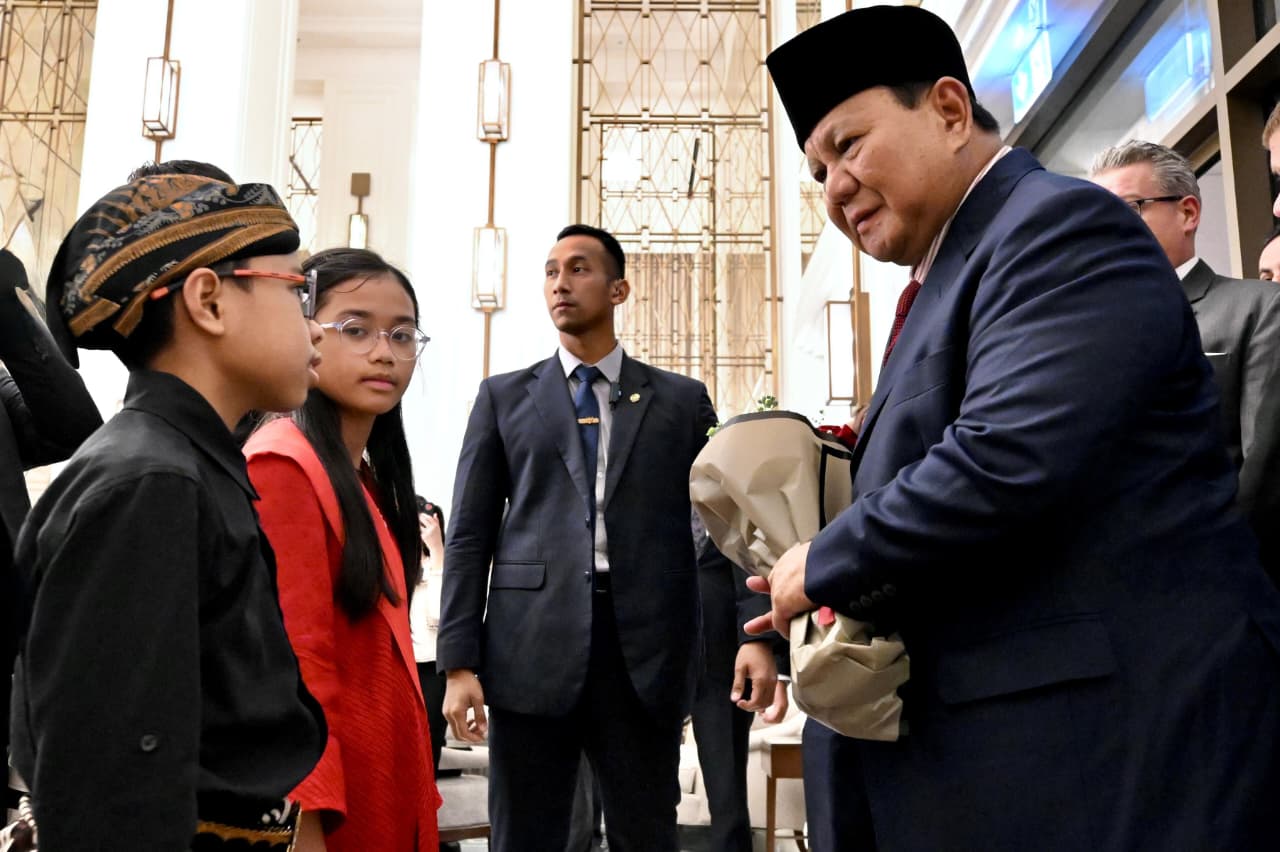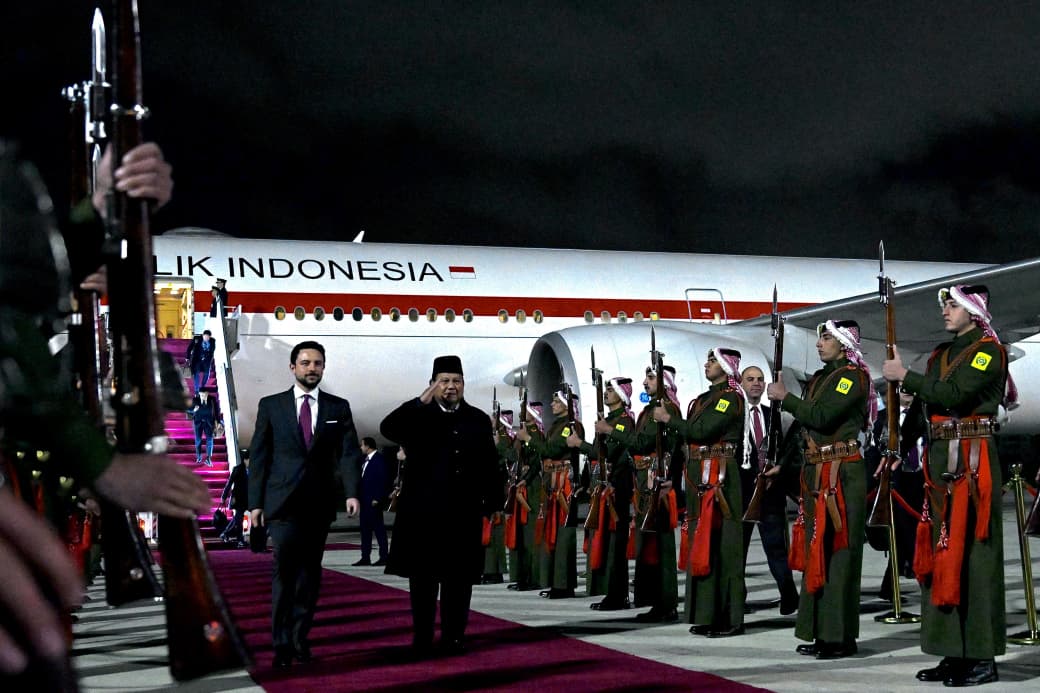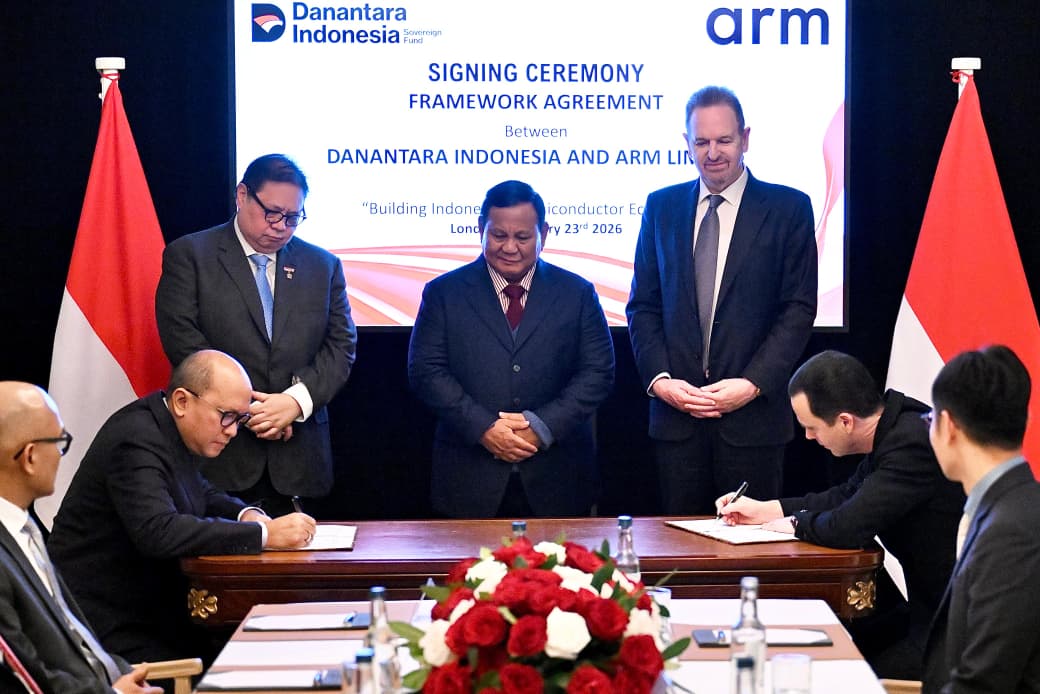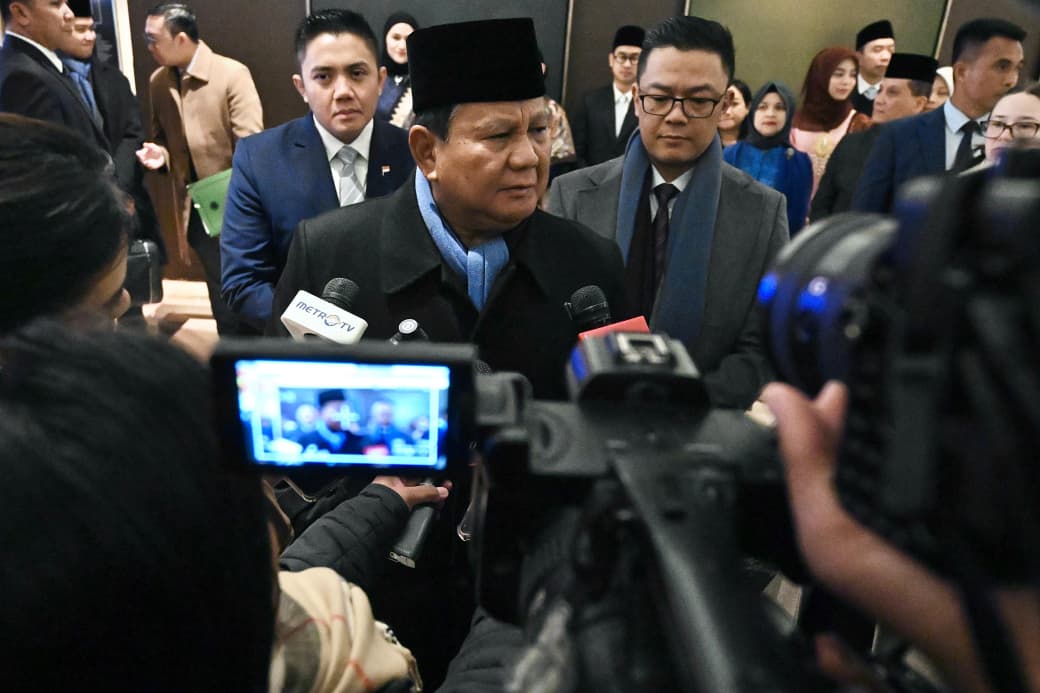President Jokowi Asks Bengkulu Govt to Reduce Poverty
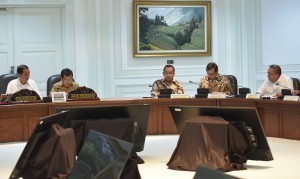
Bengkulu Governor Ridwan Mukti (far left) attends the Limited Meeting on the Evaluation on the Implementation of National Strategic Projects and Priority Programs in Bengkulu Province, at the Presidential Office, Jakarta, Wednesday (31/5) afternoon. (Photo: PR/Rahmat)
President Joko Jokowi Widodo considered that the economy in various regions including in areas outside Java has stretched rapidly. President Jokowi gave the example of the economy in Bengkulu Province which in the first quarter of 2017 grew by 5.21 percent, or above the national economic growth. “This means it is very good,” President Jokowi said while delivering his introductory remarks at a Limited Meeting on the Evaluation of the Implementation of National Strategic Projects and Priority Programs in Bengkulu Province, at the Presidential Office, Jakarta, Wednesday (31/5) afternoon.
The President requested that the higher economic growth could have a direct impact on the poverty rate decline in Bengkulu Province which is still quite high at 17.03 percent. In addition, attention should also be paid to the aspect of equity development, both concerning equitable distribution of development between regions, and even distribution of development.
For that, according to the President, economic growth should be focused on further suppressing the level of social inequality in Bengkulu Province. “I am sure that in the future the economy in Bengkulu will be able to grow higher, if we can solve the connectivity problem,” President Jokowi said.
Based on the information obtained, according to the President, there are still about 48.7 percent or about 653 villages that are still isolated in Bengkulu Province. Similarly, the connectivity that links Bengkulu Province with other provinces is still very limited.
To that end, President Jokowi requested that connectivity issues be a concern and improved, both among regions in Bengkulu Province and other provinces.
The President believes that the development of economic growth centers in various places in Sumatra Island will also have a positive impact for the economy in Bengkulu Province.
The Limited Meeting was attended by Vice President Jusuf Kalla, Coordinating Minister for Political, Legal, and Security Affairs Wiranto, Coordinating Minister for the Economy Darmin Nasution, Coordinating Minister for Human Development and Culture Puan Maharani, Minister of State Secretary Pratikno, Cabinet Secretary Pramono Anung, Presidential Chief of Staff Teten Masduki, Minister of National Development Planning/ Head of National Development Planning Agency (Bappenas) Bambang Brodjonegoro, Minister of Education and Culture Muhadjir Effendy, Minister of Health Nila F. Moeloek, Minister of Energy and Mineral Resources Ignasius Jonan, Minister of Communication and Informatics Rudiantara, Minister of Transportation Budi K. Sumadi, Minister of Agriculture Amran Sulaiman, Minister of Industry Airlangga Hartarto, Minister of Public Works and Public Housing Basuki Hadimuljono, Minister of State-owned Enterprises Rini Soemarno, Minister of Agrarian and Spatial Planning/ Head of National Land Agency (BPN) Sofyan Djalil, and Governor of Bengkulu Ridwan Mukti. (DND/SM/ RAH/ES) (MUR/YM/Naster).





